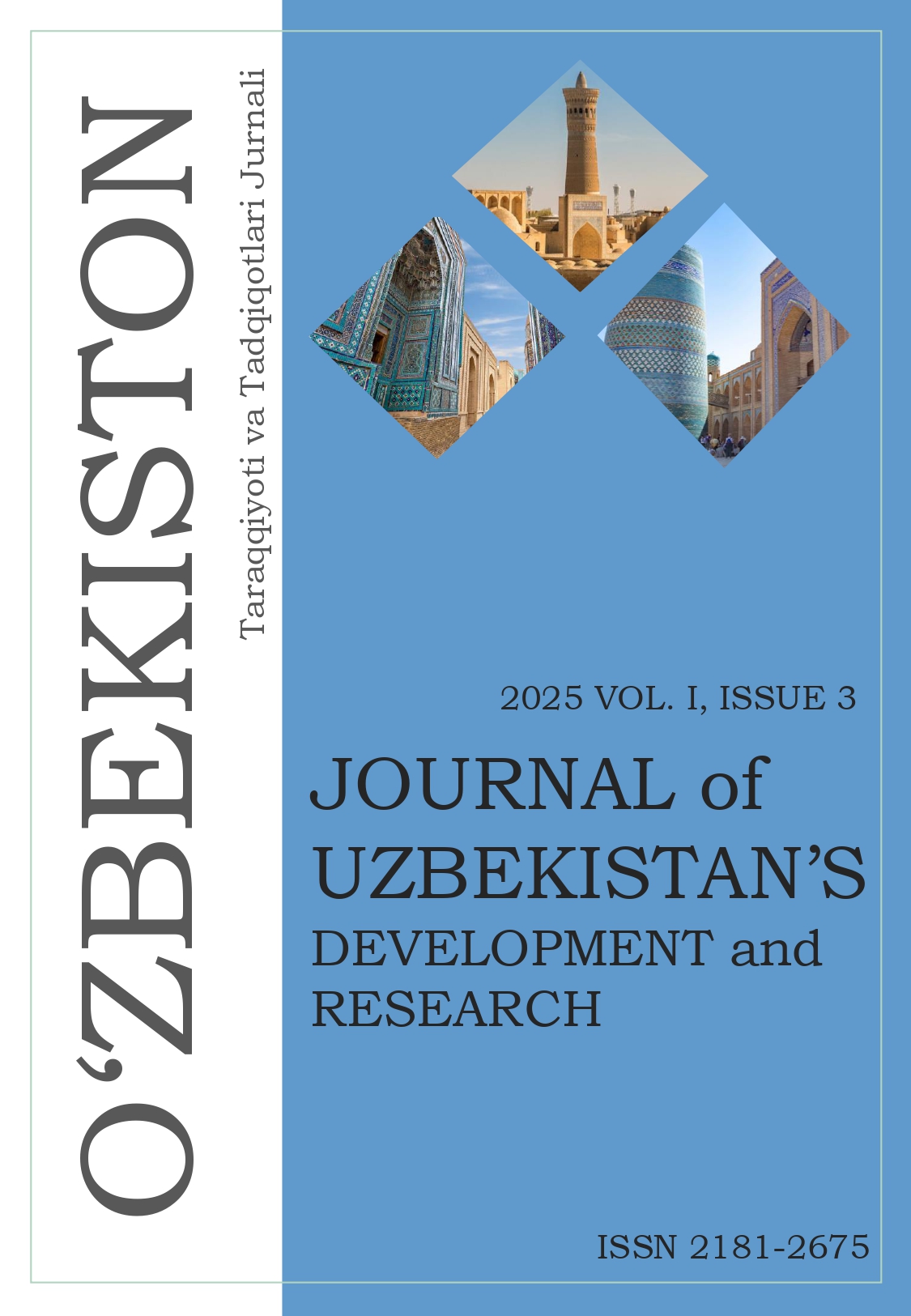PSYCHOLOGICAL DIMENSIONS OF GAMIFICATION IN EARLY CHILDHOOD LANGUAGE DEVELOPMENT: INSIGHTS FROM UZBEKISTAN
Keywords:
Gamification; Early Childhood Education; Language Development; Motivation; Cognitive Development; Uzbekistan; Digital Learning Tools; Preschool Education; Intrinsic Motivation; Educational Psychology; Interactive Learning; Cultural Context.Abstract
This study explores the psychological dimensions of gamification in
fostering language development among young children in
Uzbekistan. As the integration of digital technologies continues to
transform education globally, gamification has emerged as a
compelling approach to enhance learning, especially in early
childhood education. The research investigates how gamified
tools—such as interactive apps, digital storytelling, and reward
based systems—affect children’s intrinsic and extrinsic motivation,
engagement, and cognitive development in language learning
contexts. Through a mixed-methods approach, including
observations, language assessments, and engagement tracking, the
study examines the impact of gamification on language acquisition,
sentence formation, listening comprehension, and verbal
communication among preschool-aged children (3–7 years). The
findings highlight the potential of gamification to improve language
skills by fostering an engaging, motivating, and supportive learning
environment. Insights specific to the Uzbek context, such as cultural
considerations, educational practices, and access to digital tools,
are also discussed. This research provides valuable implications for
educators, policymakers, and curriculum developers seeking to
harness gamification as an effective tool for language development
in early childhood education.
References
1. Vygotsky, L. S. (1978). Mind in Society: The Development of Higher Psychological Processes. Harvard University Press.
2. Ginsburg, K. R. (2007). The Importance of Play in Promoting Healthy Child Development and Maintaining Strong Parent-Child Bonds. Pediatrics, 119(1), 182-191.
3. Piaget, J. (1962). Play, Dreams, and Imitation in Childhood. Norton & Company.
4. Christie, J. F., & Enz, B. J. (1992). Learning through Play: Curriculum and Activities for the Inclusive Classroom. Delmar Cengage Learning.
5. Gee, J. P. (2007). What Video Games Have to Teach Us About Learning and Literacy. Palgrave Macmillan.
6. Johnson, J. E., Christie, J. F., & Yawkey, T. D. (1999). Play and Early Childhood Development. Pearson.
7. Kankaanranta, M., & Planken, B. (2010). English as a Lingua Franca: Studies and Findings. Newcastle upon Tyne: Cambridge Scholars Publishing.
8. Bowman, L. L., & Tamborini, R. (2015). Video Game Use and Engagement in Adult Life. Media Psychology, 17(1), 72–94.
9. Sutherland, M. (2010). World of Warcraft and the power of immersion. Games and Culture, 5(4), 331–347.
Published
Issue
Section
License
Copyright (c) 2025 Matmuratova Sarbinaz (Author)

This work is licensed under a Creative Commons Attribution-NonCommercial-NoDerivatives 4.0 International License.
All Rights Reserved.





